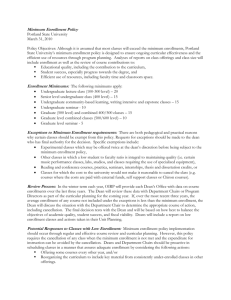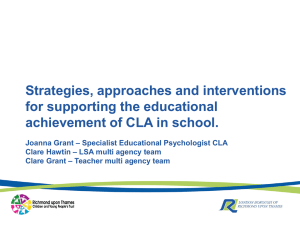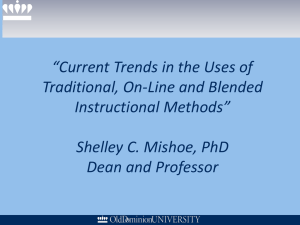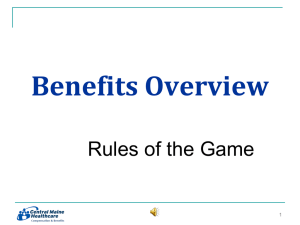FC-Minutes-Dec_4_2013 - College of Liberal Arts, CSULB
advertisement
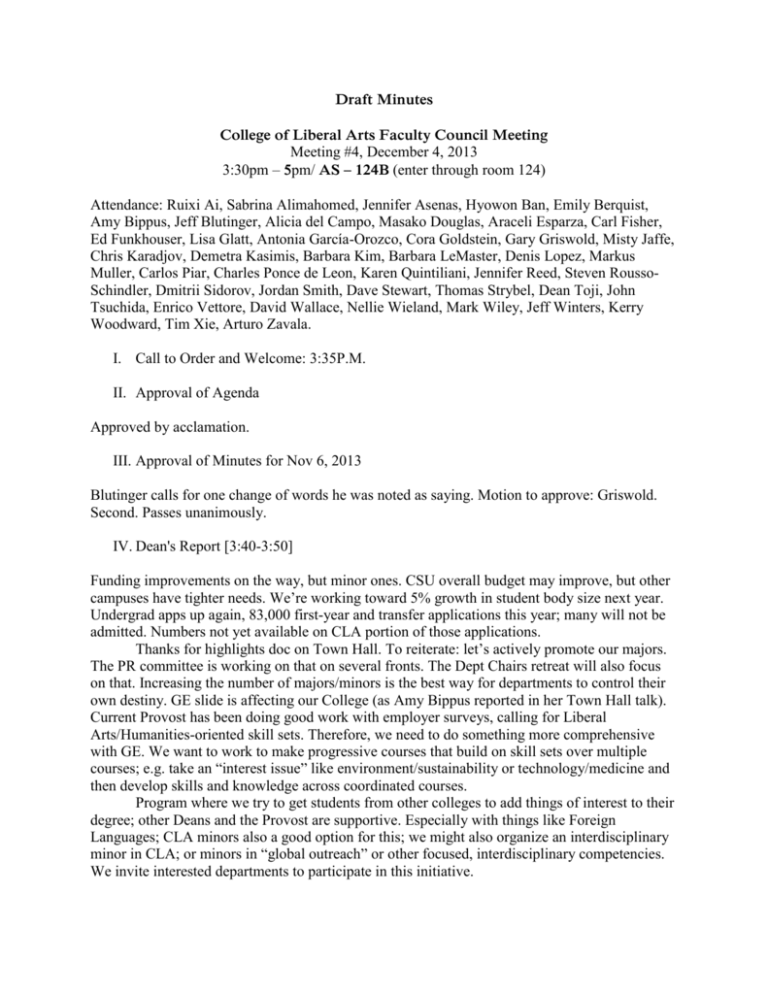
Draft Minutes College of Liberal Arts Faculty Council Meeting Meeting #4, December 4, 2013 3:30pm – 5pm/ AS – 124B (enter through room 124) Attendance: Ruixi Ai, Sabrina Alimahomed, Jennifer Asenas, Hyowon Ban, Emily Berquist, Amy Bippus, Jeff Blutinger, Alicia del Campo, Masako Douglas, Araceli Esparza, Carl Fisher, Ed Funkhouser, Lisa Glatt, Antonia García-Orozco, Cora Goldstein, Gary Griswold, Misty Jaffe, Chris Karadjov, Demetra Kasimis, Barbara Kim, Barbara LeMaster, Denis Lopez, Markus Muller, Carlos Piar, Charles Ponce de Leon, Karen Quintiliani, Jennifer Reed, Steven RoussoSchindler, Dmitrii Sidorov, Jordan Smith, Dave Stewart, Thomas Strybel, Dean Toji, John Tsuchida, Enrico Vettore, David Wallace, Nellie Wieland, Mark Wiley, Jeff Winters, Kerry Woodward, Tim Xie, Arturo Zavala. I. Call to Order and Welcome: 3:35P.M. II. Approval of Agenda Approved by acclamation. III. Approval of Minutes for Nov 6, 2013 Blutinger calls for one change of words he was noted as saying. Motion to approve: Griswold. Second. Passes unanimously. IV. Dean's Report [3:40-3:50] Funding improvements on the way, but minor ones. CSU overall budget may improve, but other campuses have tighter needs. We’re working toward 5% growth in student body size next year. Undergrad apps up again, 83,000 first-year and transfer applications this year; many will not be admitted. Numbers not yet available on CLA portion of those applications. Thanks for highlights doc on Town Hall. To reiterate: let’s actively promote our majors. The PR committee is working on that on several fronts. The Dept Chairs retreat will also focus on that. Increasing the number of majors/minors is the best way for departments to control their own destiny. GE slide is affecting our College (as Amy Bippus reported in her Town Hall talk). Current Provost has been doing good work with employer surveys, calling for Liberal Arts/Humanities-oriented skill sets. Therefore, we need to do something more comprehensive with GE. We want to work to make progressive courses that build on skill sets over multiple courses; e.g. take an “interest issue” like environment/sustainability or technology/medicine and then develop skills and knowledge across coordinated courses. Program where we try to get students from other colleges to add things of interest to their degree; other Deans and the Provost are supportive. Especially with things like Foreign Languages; CLA minors also a good option for this; we might also organize an interdisciplinary minor in CLA; or minors in “global outreach” or other focused, interdisciplinary competencies. We invite interested departments to participate in this initiative. Discussion/questions: V. Reports of Standing Committees [3:50-4:05] A. Executive Committee: Chair’s Report Town Hall meeting brought up the meaning of “value” and how we define it, give it specificity. This topic has been at the heart of many CLA discussions, and may be a good central topic for the CLA faculty retreat. The retreat will be March 21, 2014. Many issues are outstanding and need to be addressed by FC in Spring: for example, Awards Committee and other committees need to be clarified; definitions of full-time faculty for censuses; elected membership on the Budget Committee; inclusion of full-time lecturers on CLA committees except RTP—these things all have customs and traditions behind them, but our Constitution lacks specific language. B. Budget Committee: Dave Whitney None. C. Academic Senate: Gary Griswold Proposal from College of Health and Human Services: change name of the School of Criminal Justice and the degree names to reflect that. Hank Ferdela (??) has posted a proposal on the academic senate. D. PR Committee: Chris Karadjov and Jordan Smith 1. FC Website: public facing FC website available now; information forthcoming. Send event news to Chris Karadjov and Jordan Smith to facilitate publicity. VI. Old Business: None VII. New Business A. AAAS Letter of Complaint re: damaging effects of course cancellations [3:55] Jaffe: this is a discussion in which we seek to provide a forum to share thoughts on the issues outlined in the AAAS Letter of Complaint from October 2013. 1. (5 minutes) AAAS presentation of letter content See document from Tim Xie: AAAS Chair’s Statement for CLA Faculty Council, December 2013 Note: available on CLA FC website as CLA-FC-AAAS-chair_statement-Dec13.docx 2. (5 minutes) Dean's response to letter FC plays an important governance role. Some general background before I address specific concerns. I believe in the mission of the AAAS department; their commitment to teaching languages and to teaching Asian and Asian American studies is an important part of our college. My goal was to make sure enrollment management remains effective. The Department has a low, in some cases, declining number of majors; Chinese 20, Japanese 63, Asian American studies 14 majors; average class size 22-23; CLA average is 32. Tim Xie mentioned that there is not enough enrollment in their courses for tenure-track faculty to teach within the department; there is a real dependence on GE courses; as Amy Bippus’s number at the Town Hall showed, GE enrollments are a challenge across CLA. CLA receives a “target” enrollment each year, and Academic Affairs gives us “gap” funding based on this, factoring in how much we’ll need to fund lecturers to supplement TT faculty offerings. Our funding has been cut, due to lack of efficiency, which means we can offer less; we don’t want this to become a vicious cycle. Before, we could basically offer what we want and students would enroll. Now we have to be more strategic. Currently we do two rounds of cuts: 1.) when the depts. propose courses that we believe won’t fill based on Department and CLA history, and 2.) to react to unpredictable changes, large fluctuations in enrollments, etc. Response to Point made in AAAS Chair’s Statement: Dean’s office cuts classes too early. Response: The dean's office works with department to build reasonable base schedules. For example, 9 Asian American courses enrolled last spring with an average class size of 29, the department requested 14 courses in that area for Spring ’14; we are allowing 10 on the books to allow for growth. Response to Point made in AAAS Chair’s Statement: Dean’s office creates a hostile work environment (flooding Department with messages). Response: we’ve been very consultative about the big picture issues; more than a dozen times we have met with AAAS faculty, including 4 times where I met personally with the whole department faculty to work on these issues. SubPoint: we always consult chairs with the specific schedules. The chair forwarded the emails. We sent multiple emails because we didn’t receive responses. Class size and fill rates are kind of a red herring, as there are larger issues at play. We asked for suggestions and for follow-ups as to “what if” scenarios if a tenure track faculty member’s course got cut, what would they teach? No layoffs have happened, nor are any planned. Reductions in part-time staff, while regrettable, are standard, and the Order of Work means that we have to follow that procedure. Claim: Dean’s office is restricting enrolment. Response: not true. We just spoke with Amy Bippus about opening another section of Chinese 102. I don’t know where you got the 31 number; the Dept had 38 courses last semester. We’re not trying to keep this department from succeeding; we have to look at resources across 27 programs. We also provided a great deal of information about enrollment patterns to help them; I’m grateful to the good work this Dept did in revising their curriculum. If they are successful in growing their course enrollments, and we will expand course offerings as they grow. We have tried to work collegially with everyone, always. Each of our 27 departments is it’s own story; we try to keep things transparent, but there are always little things we have to do that differ between departments to address the big picture. Anything we give to one department represents resources we cannot devote to another. 1. (10 minutes) Questions from the floor Blutinger: Has the Academic Senate acted on your letter? Xie: No. Stewart: No action is planned, but the Senate will be hearing a presentation of the letter by the AAAS. Wiley: So that’s something the Department requested? Blutinger: Yes. Jaffe: restates question: Are there issues to do with enrollments in language classes where there is an enrollment cap of 25? This could affect the average of enrollments. Tsuchida: When I was chair, we had 3 self-studies done. External review recommended enrollment cap of 20/course due to the difficulty of the languages. Every semester we get from the Dean’s office enrollment for the department. I was in charge of the last review 2 years ago: according to self-study, during the 5-6 years under review, we met or came very close to meeting the target each year. The number of majors: over 90% of students who take our classes are not majors. So we should not be only looking at the number of majors we have. The classes are available for all students, but the examples usually pertain to business or science majors, who will need to learn about other ethnic groups to facilitate inter-cultural understanding in the workplace. Looking at the number of majors only provides a superficial view. Our department is being reduced to a non-degree offering program; it will be a virtual disestablishment of a degreeprogram without following the usual process; the Dean’s office can accomplish this slowly over time if the cuts are made months before the semester starts. I felt disturbed by our language faculty: if you can’t get enough students for your upper division classes, why don’t you teach Chinese and Japanese language classes together. Wallace: we certainly pay attention to both GE and number of majors in all departments. The notion that we are trying to turn this into a non-degree program is completely off-base. Bippus: we were asking you to develop courses that would involve all four language areas of the department. I never said you should combing Japanese and Chinese language classes. Funkhouser: What would you like FC to do? Xie: 1.) FC to look into establishing consistent enrollment management policy document; 2.) assess whether there is something that can be done to repair the damage to the department; 3.) create a collegial environment Wallace: consistency and transparency are difficult because the issues are complex and vary to widely between departments; we’d have to solve issues like “what is a labor-intensive course and in what departments will they be?” If we set iron thresholds (such as that enrolment must be in double digits), there are 7 courses in AAAS what would be cut right now. Something like that would be death to smaller departments. I don’t accept the premise that damage has been done: I’m optimistic about eh work the AAAS faculty has done. The notion of collegiality: I’ve tried to be as substantive and collegial environment, and I’ve been accused of creating a hostile environment by asking a Chair to respond in a way that I ask all chairs to respond. I don’t know that rules and principles will deliver case-specific relief that departments will be looking for. What could be done: we will build base schedules based on enrollment histories and will make adjustments. Jeff Winters: Classes have been cut during enrolment period while students were already enrolled. Masako Douglas: we cannot combine courses because we’ve been working hard to teach the courses IN Japanese or IN Chinese. Amy Bippus suggested that we combine 300-400 level courses, which is impossible due to large differences in ability at each level. Griswold: Item 1: data showed that enrollment increased in the two weeks prior to the semester start. What data were you using? Douglas: I kept data of how enrolments increased just before the semester starts; before the semester starts, we have only single digits; after semester start, we had numbers climb significantly. This pattern is very stable. Tsuchida: Japanese faculty requires placements before placing students in classes; esp. upperdivision students in language classes for transfer students; they may not come with adequate preparation, so enrolments have to wait until students come to campus and take placement test. Dean Wallace did not mention that when he comes to our faculty meetings, he says that things are non-negotiable; but we have 4 TT faculty in Asian American studies, but Amy proposed cutting courses to 10 – this is not conducive to a healthy department; this is what happened to our MA program too. 4 days after acceptance letters went out to MA applicants, they were rescinded. Fisher: It’s very hard to say one set of principles will apply neatly to all departments; in our CWL/Classics department, classics had low enrollments: we had to combine 300-400 level classes in Greek in order to keep the program going as we try to grow it. Barbara Kim: at the Town Hall, language classes (Para’s comment) were undermined. We really need the support as a smaller department in order to integrate successfully into and contribute to the larger mission of the CLAs departments working to support language education. Smaller departments will not be able to teach 50-student courses in languages, and that will affect our enrollment averages. Quintiliani: I agree with the issue of language programs. What would you need to be able to plan adequately? This is a concern to FC and to our College. If we have more students coming in [as Wallace announced], isn’t it premature to cut classes excessively? “Enrollment averages” Wallace: We have tried and will continue to try to make sure that all our programs remain viable long-term. We need to ensure that the curriculum will be there and that student interest will continue to climb. Recruitment, getting languages worked into other major programs—this will make conversations like this unnecessary. All departments must realize: when you choose to privilege something (such as 20 student enrollment cap), something else has got to give. 2. (15 minutes) FC members' discussion Jaffe: we need to determine how to respond and which part of this committee would do it. FC Exec could take on that task but take on participation, forming a committee of Exec plus a few others that would return with data and recommendations. Funkhouser: FC is not the best place to deal with individual departmental complaints. The HR committee could do this, correct? Dean Toji: we tried to propose to Wallace that we could balance lower enrolled upper-div classes in As Am St with larger GE classes, but he rejected that proposal, then penalized us for lower enrollment averages. Dmitrii Sidorov: Could we merge regional programs with this department? Griswold: what is a “labor intensive” course –when is it okay to have a course run at 20? When is it not? Seems like language and writing courses MUST be capped. Alicia del Campo: this is not just for faculty—it’s for students. Woodward: We’re facing this with our grad classes—we’re told that we can’t run grad classes because the numbers. Tsuchida: when Jerry was dean, if we had only 10-12 students for upper division classes, he allowed us to offer more courses in languages. If we don’t offer courses necessary to graduate, how can we graduate students? Amy said things such as that our courses could be cut early to give the classroom s to communications—we were shocked. These statements are in our Department meeting minutes, approved unanimously, 10 of us heard – they cannot deny that she said these things. Funkhouser: requests Smith email him about the website, as he created the old website. Motion: LeMaster. Second: Griswold. Form a committee comprised of Executive Committee plus 3 more members to examine issue (fact finding) on CLA enrollment management practices. Unanimous approval of the motion. B. CFA Letter and 6 November FC discussion follow up re: Ethnic Studies [4:45] A resolution by LeMaster was distributed in the meeting. Document will be distributed electronically prior to next FC meeting. VIII. Adjournment 5:00 PM

